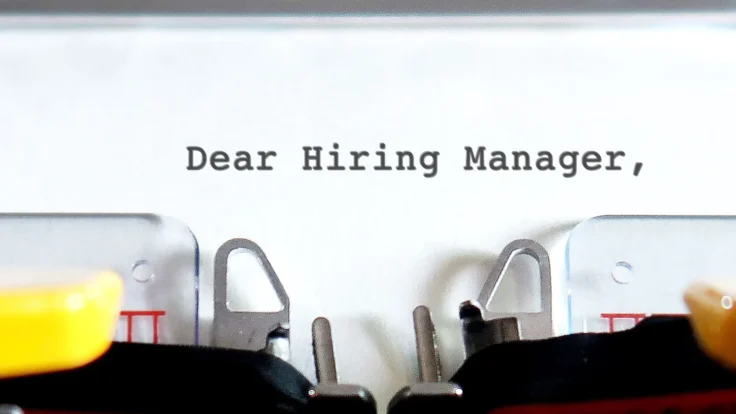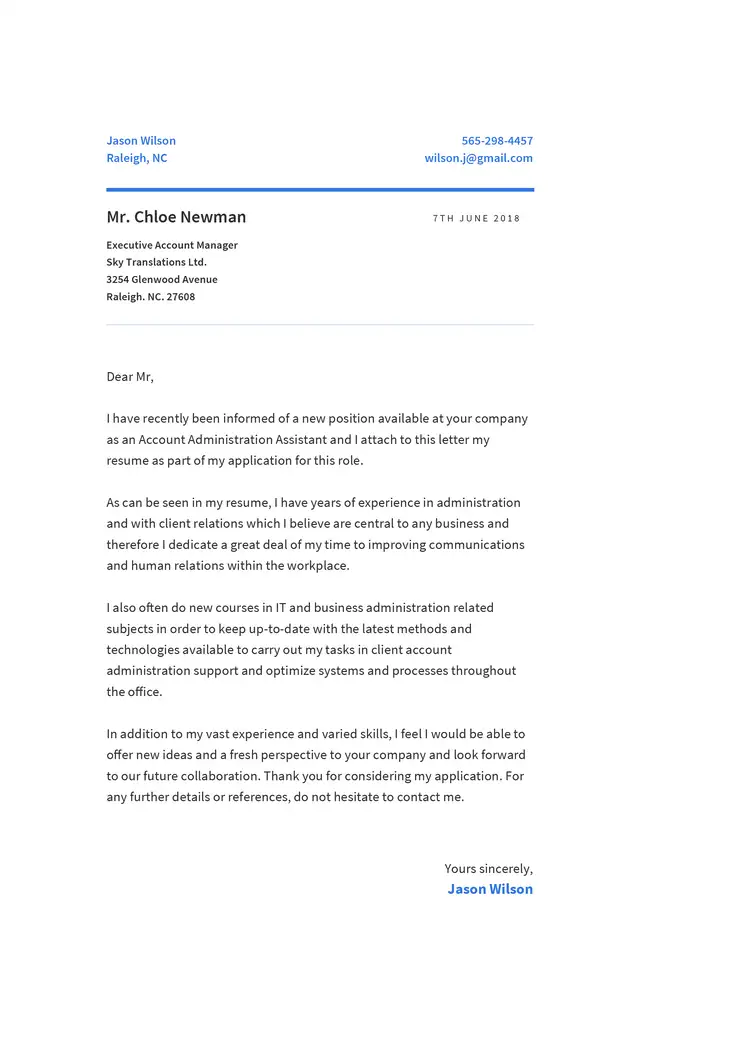If you’re thinking about applying to college or a new job and want to quickly show how motivated you are, you might looking for the best way to get that done.
Don’t worry, that’s normal, but you need a solution.
After all, when planning to apply for something, it’s essential to make a great first impression.
That’s why many applicants send in a cover letter or a motivation letter.
However, you might be wondering if there’s any difference at all between a motivation and a cover letter, and which one is better for the job you want to land?
In this article, we’ll explain:
- Cover letter and motivation letter differences
- Benefits of each type of letter
- When to use one letter or the other
Once you understand which is best to include with your application, use our AI-powered resume builder to easily win over employers.
Keep reading to find out the best way to show off your career goals to employers.
Motivation vs. Cover Letter: Key Differences
Employers want to find and hire applicants who are highly motivated as it leads to a number of benefits for the company such as guaranteeing a great company culture and keeping the employee long term.
However, choosing between a cover letter or writing a motivation letter will depend on the type of program or company.
That’s because each letter focuses on different aspects of your qualifications and experience.
Take a look at the differences between the 2 types of letters:
Motivation Letter
- Centers on personal goals and passion for the field and is more personal and reflective, while discussing long-term aspirations.
Cover Letter
- Highlights professional skills and job suitability and is used for professional positions as it showcases relevant achievements and qualifications.
By picking the letter that best fits the position you want, you’ll guarantee that the hiring manager notices your best qualifications and goals.
Cover Letter vs. Motivation Letter: When to Use Them
There are a number of unique motivation letter and cover letter differences and strengths.
This means it’s critical to understand when to use those strengths, or you’ll end up explaining information that isn’t important.
For example, when applying for college or graduate school programs, you should use a motivation letter as it will help you show your passion for your field of study.
Here are other examples of when to use a motivational letter:
- Scholarship applications. Share how the scholarship will help you achieve your educational and career goals.
- Internships: Explain how you want to learn from experienced employees, especially in fields where your academic knowledge is essential.
- Volunteer positions: Mention your commitment and reasons for volunteering to an NGO or other organization that you would like to work with.
When to Write a Cover Letter
Cover letters focus more on your professional qualifications, so they should be used when sending your application to a company or business.
Here are some specific examples:
- When applying to a job: Use your cover letter to connect your experience and skills to the job’s requirements.
- Changing careers: Explain how your existing skills can transfer to the new role in your cover letter.
Even if it’s optional to send in a cover letter with your application, you should do so anyway.
It’s been proven that cover letters help candidates when applying for a position.
Between 2017 and 2021, there has been an 18% growth in the importance of including a cover letter with an application.
Cover Letter and Motivation Letter Differences in Format
Both cover letters and motivation letters differ a bit when it comes to their format. One is a bit longer, while the other is a bit more formal.
However, each letter will have an intro, body, and conclusion.
Cover letter format
If you’re writing a cover letter, you’ll want to keep it to 1 page and keep the vocabulary formal.
Your cover letter should cover the following in the different sections:
- Introduction: Briefly mention your current role or recent job and the position you’re applying for.
- Body: Mention your skills and achievements relevant to the job. Use examples to demonstrate your achievements and how they apply to the new role.
- Conclusion: Restate your interest in the position and invite the employer to review your resume or contact you for further discussion.
Here’s an example of a well written cover letter that mentions a candidate’s skills, accomplishments and more, so that you can better understand the format and style:
Dear [Employer’s Name],
I am writing to express my interest in the Accountant position listed on [Where You Found the Job Posting]. With a strong background in accounting principles and a commitment to accuracy and detail, I am excited about the opportunity to contribute to [Company Name].
In my current role at [Your Current Company], I have successfully managed a diverse range of accounting tasks, including ledger operations, financial reporting, and budgeting.
I am particularly proud of leading a project that streamlined our budgeting process, resulting in a 20% reduction in processing time.
I am eager to bring my expertise in financial management and my proactive approach to problem-solving to your team.
Thank you for considering my application. I look forward to the opportunity to discuss how my skills and experience align with the needs of your team. I am available at your convenience for an interview and can be reached at [Your Phone Number] or [Your Email].
Sincerely,
[Your Name]
Motivation Letter Format
A motivation letter on the other hand can be a bit longer and more related to personal goals rather than professional ones.
Here’s what the different sections should go over:
- Introduction: Start with a personal statement or story that reflects your passion for the field or program.
- Body: Discuss your personal journey, long-term goals, and why the program or opportunity excites you. Include relevant personal achievements as well.
- Conclusion: Summarize your ambitions and how the opportunity aligns with your goals, expressing your desire to contribute and learn.
Here’s how your motivation letter can be formatted to show you are the best candidate for an internship position.
Dear [Recipient’s Name],
I am writing to express my enthusiasm for the [Specific Internship Position] at [Company/Organization Name]. My academic background in [Your Major/Field of Study] and my active involvement in [relevant clubs or activities] have fueled my interest in [specific aspect of the field or industry], making this internship an ideal opportunity for my professional growth.
During my studies at [Your University/College], I have developed [mention specific skills or knowledge relevant to the internship], which I am eager to apply in a practical setting
I am particularly attracted to this internship at [Company/Organization Name] because of your commitment to [mention something notable about the company or its values]. The chance to learn from and contribute to your team, especially in [mention a specific area or project of the company], is an exciting prospect for me.
Thank you for considering my application. I am looking forward to the opportunity to discuss how my background and enthusiasm make me a great fit for this internship.
Sincerely,
[Your Name]
Key Points
When you write a cover letter or motivation letter, you’ll need to ensure your relevant qualifications and long-term goals shine.
You can do that if you remember the following:
- Motivation letters should be written for internships, organizations, and academic programs.
- Cover letters are more professional and should accompany a job application.
- Motivation letters are a bit more personal.
By using our handy cover letter builder, you can easily create a letter that will prove you are motivated and ready to take on your next challenge.
Related blogs


